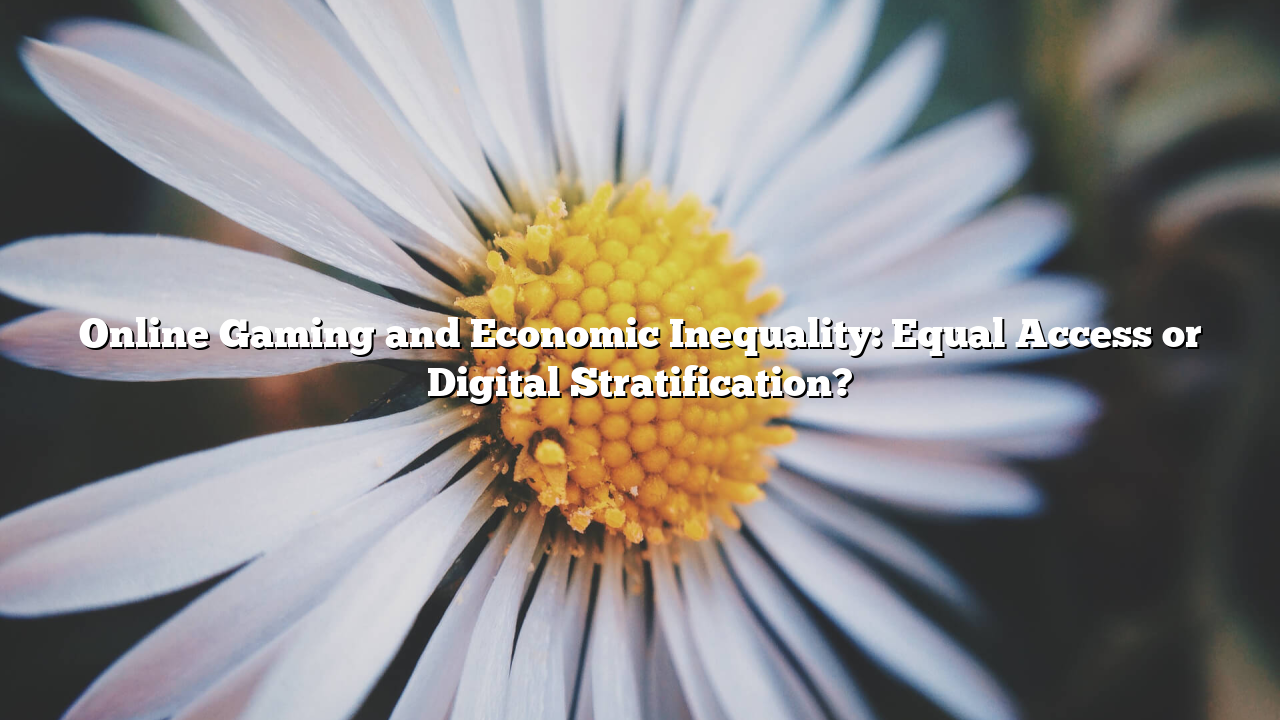Effective leadership is crucial in the political sphere. Those in power guide the direction of their countries through their decisions and communication. Effective leaders usually demonstrate honesty, foresight, and a unifying presence.
In democracies, elections are the main method to choose representatives. They provide citizens the opportunity to voice their preferences. However, elections can also be marred by controversies such as voter suppression, misinformation, and manipulation.
Party politics often reflect underlying ideologies such as liberalism, conservatism, socialism, and nationalism. Policy approaches on economy, equality, and international affairs stem from ideological beliefs.
There is a rising trend of political division and polarization worldwide. Polarization can be seen in news outlets, social conversations, and community interactions. Such division challenges democratic processes and complicates governance.
The influence of globalization on politics is profound. International cooperation and conflict have become more interconnected. Issues such as climate change, trade, migration, and security require multinational efforts.
Digital technology and social platforms have reshaped how people engage with politics. They allow politicians to connect directly with voters and mobilize support. Yet, they facilitate the spread of false information and reinforce partisan bubbles.
In conclusion, politics remains a vital and complex aspect of human society. Its ongoing evolution requires vigilance, participation, and informed debate from citizens. sewu 88 slot play a crucial role in politics by voting, protesting, and discussing issues.
To navigate the complexities of the modern world, understanding politics is key. Examining leadership, ideologies, and global influences allows better foresight in politics.
In the end, politics is about people and the choices they make to govern themselves.
john
Related Story
strategi ritme bermain dengan target kemenangan 8 juta dalam sesi mahjong ways 2 pgsoft yang terukur
pendekatan modal bertahap saat target cuan 14 juta menjadi fokus di mahjong wins 3 pragmatic
manajemen sesi aman dengan target wd 6 juta pada permainan mahjong ways 2 pgsoft
kontrol emosi dan saldo saat target profit 19 juta dikejar di mahjong wins 3 pragmatic
penyelarasan tempo bermain ketika target kemenangan 10 juta dipasang di mahjong ways 2 pgsoft
evaluasi putaran panjang dengan target cuan 5 juta dalam mahjong wins 3 pragmatic
pengaturan intensitas bermain untuk target wd 15 juta pada mahjong ways 2 pgsoft
disiplin modal digital saat target profit 7 juta menjadi penentu di mahjong wins 3 pragmatic
pembacaan momentum sesi dengan target kemenangan 3 juta dalam mahjong ways 2 pgsoft
penataan strategi rasional ketika target cuan 18 juta ditetapkan di mahjong wins 3 pragmatic
strategi observasi untuk memperoleh 5 juta di pg soft lewat rtp dan pola disiplin
ritme bermain konsisten demi memenangkan 6 juta pada mahjong wins 3 dengan winrate terkendali
manajemen risiko tenang guna cuan 3 juta saat bermain mahjong dengan wild terukur
pembacaan alur putaran agar memperoleh 7 juta di mahjong ways 2 lewat scatter bertempo
evaluasi probabilitas stabil untuk dapatkan 4 juta pada pragmatic play
timing masuk lebih sadar demi memenangkan 8 juta di pg soft dengan pola konsisten
sinkron tempo dan winrate untuk cuan 2 juta pada mahjong wins 3 dalam sesi panjang
kontrol intensitas putaran agar memperoleh 6 juta di mahjong dengan rtp seimbang
fase transisi tepat guna dapatkan 9 juta pada mahjong ways 2 melalui pola terbaca
kalibrasi risiko rasional untuk memenangkan 5 juta di pragmatic play
rutinitas santai jadi lebih bernilai saat aktivitas ringan bertemu mahjong ways
waktu luang terasa produktif ketika hiburan harian menyatu dengan wild bounty
di sela kesibukan pilihan relaksasi gates of olympus 1000 memberi dampak nyata
momen rehat harian berubah arah saat mahjong wins 3 menemani dengan stabil
menjaga keseimbangan hidup ketika pola santai hadir lewat mahjong ways
gaya hidup fleksibel terasa nyaman saat wild bounty mengisi jeda aktivitas
akhir hari lebih terkelola ketika gates of olympus 1000 menutup sesi positif
hiburan pribadi naik kelas saat mahjong wins 3 memberi nilai tambah bertahap
rutinitas ringan mendapat arah baru ketika mahjong ways mengalir seimbang
mengisi waktu senggang lebih terarah saat wild bounty menemukan ritmenya
manajemen modal disiplin saat target cuan 6 juta menjadi fokus di mahjong wins 3 pragmatic
strategi kontrol tempo bermain dengan target wd 14 juta dalam mahjong ways 2 pgsoft
penguatan fokus dan emosi ketika target profit 18 juta dijalankan di mahjong wins 3 pragmatic
penataan alur bermain rasional dengan target kemenangan 4 juta pada mahjong ways 2 pgsoft
evaluasi dinamika sesi panjang saat target cuan 16 juta ditetapkan di mahjong wins 3 pragmatic
sinkronisasi waktu dan saldo dengan target wd 7 juta dalam mahjong ways 2 pgsoft
pendekatan modal bertahap ketika target profit 11 juta menjadi acuan di mahjong wins 3 pragmatic
optimasi intensitas putaran dengan target kemenangan 15 juta pada mahjong ways 2 pgsoft
pengendalian ritme bermain saat target cuan 3 juta diprioritaskan di mahjong wins 3 pragmatic
strategi ritme bermain dengan target kemenangan 8 juta dalam sesi mahjong ways 2 pgsoft yang terukur
pendekatan modal bertahap saat target cuan 14 juta menjadi fokus di mahjong wins 3 pragmatic
manajemen sesi aman dengan target wd 6 juta pada permainan mahjong ways 2 pgsoft
kontrol emosi dan saldo saat target profit 19 juta dikejar di mahjong wins 3 pragmatic
penyelarasan tempo bermain ketika target kemenangan 10 juta dipasang di mahjong ways 2 pgsoft
evaluasi putaran panjang dengan target cuan 5 juta dalam mahjong wins 3 pragmatic
pengaturan intensitas bermain untuk target wd 15 juta pada mahjong ways 2 pgsoft
disiplin modal digital saat target profit 7 juta menjadi penentu di mahjong wins 3 pragmatic
pembacaan momentum sesi dengan target kemenangan 3 juta dalam mahjong ways 2 pgsoft
penataan strategi rasional ketika target cuan 18 juta ditetapkan di mahjong wins 3 pragmatic
pengamanan saldo bertahap dengan target wd 9 juta pada mahjong ways 2 pgsoft
sinkronisasi waktu dan modal saat target profit 12 juta dijalankan di mahjong wins 3 pragmatic
konsistensi bermain dengan target kemenangan 16 juta dalam alur mahjong ways 2 pgsoft
pengendalian ritme sesi ketika target cuan 4 juta diprioritaskan di mahjong wins 3 pragmatic
perencanaan sesi menengah dengan target wd 20 juta pada mahjong ways 2 pgsoft
adaptasi strategi bermain saat target profit 11 juta menjadi acuan di mahjong wins 3 pragmatic
pembagian modal mikro dengan target kemenangan 2 juta dalam mahjong ways 2 pgsoft
ketahanan fokus bermain saat target cuan 13 juta dikejar di mahjong wins 3 pragmatic
optimalisasi putaran aktif dengan target wd 17 juta pada mahjong ways 2 pgsoft
perhitungan risiko rasional ketika target profit 1 juta diterapkan di mahjong wins 3 pragmatic
strategi observasi untuk memperoleh 5 juta di pg soft lewat rtp dan pola disiplin
ritme bermain konsisten demi memenangkan 6 juta pada mahjong wins 3 dengan winrate terkendali
manajemen risiko tenang guna cuan 3 juta saat bermain mahjong dengan wild terukur
pembacaan alur putaran agar memperoleh 7 juta di mahjong ways 2 lewat scatter bertempo
evaluasi probabilitas stabil untuk dapatkan 4 juta pada pragmatic play
timing masuk lebih sadar demi memenangkan 8 juta di pg soft dengan pola konsisten
sinkron tempo dan winrate untuk cuan 2 juta pada mahjong wins 3 dalam sesi panjang
kontrol intensitas putaran agar memperoleh 6 juta di mahjong dengan rtp seimbang
fase transisi tepat guna dapatkan 9 juta pada mahjong ways 2 melalui pola terbaca
kalibrasi risiko rasional untuk memenangkan 5 juta di pragmatic play
penyelarasan pola internal demi memperoleh 8 juta di pg soft dengan scatter terkontrol
penataan sesi rapi agar cuan 4 juta pada mahjong wins 3 tetap terstruktur
jalur bermain aman untuk memenangkan 3 juta di mahjong tanpa ganggu ritme
observasi momentum bertahap guna dapatkan 2 juta pada mahjong ways 2
evaluasi putaran disiplin demi memperoleh 7 juta di pragmatic play
ritme internal stabil agar cuan 1 juta di pg soft tetap terarah
scatter bertahap untuk memenangkan 6 juta pada mahjong wins 3
strategi fleksibel guna dapatkan 4 juta di mahjong dengan risiko rendah
momentum kritis terukur demi memperoleh 10 juta pada mahjong ways 2
penutupan sesi terarah untuk memenangkan 5 juta di pragmatic play
metode disiplin modal berbasis target cuan 12 juta dalam sesi panjang mahjong wins 3 pragmatic
cara menyusun strategi aman dengan target wd 5 juta di mahjong ways 2 pgsoft tanpa overplay
teknik manajemen saldo digital berorientasi target profit 18 juta pada mahjong wins 3 pragmatic
kiat mengontrol intensitas putaran saat target kemenangan 9 juta diterapkan di mahjong ways 2 pgsoft
formula evaluasi ritme sesi dengan target cuan 15 juta dalam mahjong wins 3 pragmatic
metode pembacaan momentum bermain untuk target wd 3 juta di mahjong ways 2 pgsoft
cara menjaga fokus dan modal saat target profit 20 juta dikejar di mahjong wins 3 pragmatic
teknik sinkronisasi waktu bermain dengan target kemenangan 11 juta pada mahjong ways 2 pgsoft
kiat menyelaraskan ritme dan saldo ketika target cuan 6 juta ditetapkan di mahjong wins 3 pragmatic
formula pengendalian sesi panjang berbasis target wd 14 juta dalam mahjong ways 2 pgsoft
metode penguatan mental bermain dengan target profit 8 juta pada mahjong wins 3 pragmatic
cara menghindari keputusan emosional saat target kemenangan 4 juta dipasang di mahjong ways 2 pgsoft
teknik pembagian modal bertahap untuk target cuan 17 juta dalam mahjong wins 3 pragmatic
kiat pengamanan saldo digital ketika target wd 10 juta menjadi fokus di mahjong ways 2 pgsoft
formula manajemen risiko halus dengan target profit 13 juta pada mahjong wins 3 pragmatic
metode penyesuaian tempo bermain saat target kemenangan 2 juta dijalankan di mahjong ways 2 pgsoft
cara menata strategi rasional dengan target cuan 19 juta dalam mahjong wins 3 pragmatic
teknik optimalisasi sesi aktif berbasis target wd 16 juta di mahjong ways 2 pgsoft
kiat perencanaan finansial bermain dengan target profit 1 juta pada mahjong wins 3 pragmatic
ritme hidup lebih tertata saat aktivitas santai bertemu mahjong ways yang mengalir stabil
gaya hidup rumahan terasa lebih produktif ketika wild bounty menghadirkan hasil nyata
di tengah jadwal padat hiburan ringan gates of olympus 1000 memberi nilai tambah
momen rehat harian menjadi lebih bermakna saat mahjong wins 3 berjalan konsisten
menata ulang waktu luang ketika pola santai mahjong ways mulai terasa menguntungkan
keseimbangan lifestyle digital terjaga saat wild bounty mengisi jeda aktivitas
akhir hari terasa lebih lega ketika gates of olympus 1000 menutup sesi positif
hiburan personal naik level saat mahjong wins 3 memberi dampak finansial bertahap
rutinitas santai mendapat nilai tambah ketika mahjong ways mengalir alami
mengisi waktu senggang dengan nyaman saat wild bounty menemukan ritmenya
gaya hidup fleksibel terasa seimbang ketika gates of olympus 1000 berjalan stabil
momen me time lebih berkualitas saat mahjong wins 3 menghadirkan hasil
relaksasi harian menjadi lebih bernilai ketika mahjong ways menyatukan santai dan cuan
produktivitas ringan hadir di tengah aktivitas saat wild bounty mengalir konsisten
hiburan digital terasa lebih terarah ketika gates of olympus 1000 menemani rutinitas
menjaga mood dan fokus harian saat mahjong wins 3 memberi tambahan nyaman
waktu rehat tidak lagi biasa ketika mahjong ways memberi hasil bertahap
lifestyle modern terasa lebih cair saat wild bounty mengisi celah aktivitas
santai tanpa tekanan terasa nyata ketika gates of olympus 1000 mengalir positif
keseharian digital lebih seimbang saat mahjong wins 3 menambah nilai finansial
strategi analitis untuk memperoleh 5 juta di pg soft melalui rtp dan pola yang terbaca
pendekatan ritme sesi demi memenangkan 8 juta pada mahjong wins 3 berbasis winrate
manajemen risiko terukur guna cuan 2 juta saat bermain mahjong dengan wild dan scatter
observasi transisi putaran untuk memperoleh 7 juta di mahjong ways 2 lewat rtp stabil
evaluasi indikator kunci agar dapatkan 4 juta pada pragmatic play berbasis probabilitas
penataan awal sesi demi memenangkan 1 juta di pg soft dengan pola aman
penajaman timing masuk untuk cuan 9 juta pada mahjong wins 3 melalui scatter bertahap
kontrol intensitas putaran agar memperoleh 6 juta di mahjong dengan wild seimbang
pemanfaatan fase kritis demi dapatkan 10 juta pada mahjong ways 2 berbasis rtp
kalibrasi risiko berkala untuk memenangkan 3 juta di pragmatic play dengan winrate terjaga
penyelarasan pola internal guna memperoleh 8 juta di pg soft lewat scatter dan rtp
pengaturan tempo bermain demi cuan 4 juta pada mahjong wins 3 berbasis probabilitas
pemilihan jalur aman untuk memenangkan 5 juta di mahjong dengan pola rapi
pembacaan fase permainan agar dapatkan 2 juta pada mahjong ways 2 dengan rtp konsisten
penguatan disiplin sesi guna memperoleh 9 juta di pragmatic play lewat winrate stabil
penyesuaian strategi bertahap demi cuan 1 juta pada pg soft dengan pola terkontrol
optimalisasi ritme internal untuk memenangkan 7 juta di mahjong wins 3 melalui scatter aktif
sinkronisasi keputusan putaran agar dapatkan 3 juta pada mahjong berbasis probabilitas
eksekusi momentum terukur guna memperoleh 10 juta di mahjong ways 2 lewat pola kritis
penutupan sesi berbasis evaluasi demi memenangkan 6 juta pada pragmatic play dengan rtp
analisis integrasi grid dan rtp pada mesin kasino mahjong ways di ekosistem kasino online
pendekatan teknis mahjong wins 3 dalam mengurai pola simbol pada sistem kasino digital
studi transisional mahjong ways 2 terhadap perubahan fase mesin kasino dan stabilitas rtp
teknik profesional membaca ritme mesin kasino mahjong ways di platform kasino online
rahasia arsitektur grid mahjong wins 3 yang membentuk distribusi simbol di kasino digital
analisis sinkronisasi simbol mahjong ways 2 terhadap kinerja rtp mesin kasino
trik teknis mengidentifikasi arah permainan mahjong ways melalui transisi sistem
kajian mekanis mahjong wins 3 tentang hubungan grid modular dan dinamika rtp
racikan strategi mahjong ways 2 berbasis evaluasi pola sistem kasino digital
analisis konstruksi mesin kasino mahjong ways dalam mengatur alur permainan online
teknik identifikasi pola simbol mahjong wins 3 pada mesin kasino berbasis grid dinamis
studi teknis mahjong ways 2 mengenai pemetaan grid bertahap dan pengaruh rtp
rahasia desain sistem mahjong ways sebagai mesin kasino digital bertransisi adaptif
pendekatan analitis mahjong wins 3 dalam menilai konsistensi sistem di kasino online
trik observasional mahjong ways 2 membaca momentum permainan dari struktur grid bertingkat
analisis sistem mahjong ways terhadap aktivitas simbol aktif dalam lingkungan kasino digital
racikan profesional mahjong wins 3 menggabungkan analisis grid dan ritme rtp mesin kasino
studi pola mahjong ways 2 untuk memahami mekanisme transisi mesin kasino online
teknik evaluasi performa mahjong ways melalui pengukuran rtp di platform kasino digital
analisis strategis mahjong wins 3 terhadap respons mesin kasino dalam sistem online modern
pendekatan berlapis memperoleh 8 juta dari rtp dinamis dan scatter terkontrol di pg soft
strategi disiplin sesi cuan 2 juta lewat pembacaan probabilitas di mahjong wins 3
metode konsistensi ritme memenangkan 6 juta dengan wild dan pola stabil di mahjong
teknik adaptasi tekanan dapatkan 1 juta melalui rtp seimbang di kakek zeus
cara berbasis indikator memperoleh 9 juta dari evaluasi scatter dan winrate di pragmatic play
rencana bermain bertahap cuan 4 juta lewat sinkron rtp dan pola di pg soft
analisis sesi panjang memenangkan 7 juta dengan probabilitas terbaca di mahjong wins 3
skema pengendalian risiko dapatkan 3 juta dari manajemen wild di mahjong
teknik momentum kritis memperoleh 10 juta melalui scatter aktif di kakek zeus
pendekatan evaluatif akhir memenangkan 5 juta dengan rtp sebagai acuan di pragmatic play
akhir hari lebih puas ketika gates of olympus 1000 mengalir stabil
waktu senggang jadi lebih bernilai saat mahjong wins 3 memberi nilai tambah
menjaga mood dan fokus harian ketika mahjong ways menyatukan santai dan cuan
lifestyle fleksibel terasa nyaman saat wild bounty menghadirkan hasil menengah
hiburan modern terasa seimbang ketika gates of olympus 1000 mengiringi rutinitas
rutinitas santai jadi lebih produktif saat mahjong wins 3 berjalan konsisten
waktu rehat terasa lebih berkualitas ketika mahjong ways memberi dampak positif
mengisi waktu luang dengan nyaman saat wild bounty mengalir natural
relaksasi sehari hari lebih bermakna ketika gates of olympus 1000 memberi cuan
lifestyle modern terjaga seimbang saat mahjong wins 3 menambah nilai finansial
perencanaan sesi berbasis data memperoleh 6 juta dari rtp dan pola aktif di pg soft
pembacaan ritme permainan memenangkan 2 juta lewat winrate dan scatter terjaga di mahjong wins 3
manajemen risiko bertahap cuan 9 juta dari probabilitas dan wild terkontrol di mahjong
observasi transisi putaran memperoleh 4 juta melalui sinkron rtp dan pola di kakek zeus
evaluasi indikator kunci dapatkan 7 juta dengan winrate konsisten di pragmatic play
penyelarasan tempo bermain memenangkan 1 juta dari rtp stabil dan pola aman di pg soft
pendekatan sesi panjang cuan 8 juta lewat scatter bertahap di mahjong wins 3
kontrol intensitas putaran memperoleh 5 juta dari wild aktif dan probabilitas seimbang di mahjong
pembacaan momentum kritis dapatkan 10 juta melalui pola transisi dan rtp di kakek zeus
penilaian risiko terukur memenangkan 3 juta dengan winrate terjaga di pragmatic play
penyusunan strategi adaptif memperoleh 7 juta dari rtp dinamis dan scatter di pg soft
pemilihan timing masuk cuan 4 juta lewat probabilitas dan pola rapi di mahjong wins 3
penataan sesi bertempo memenangkan 6 juta dari wild dan winrate seimbang di mahjong
analisis fase permainan dapatkan 2 juta melalui rtp konsisten di kakek zeus
validasi data putaran memperoleh 9 juta dari scatter dan probabilitas di pragmatic play
penguatan disiplin bermain cuan 1 juta lewat pola aman dan rtp stabil di pg soft
optimasi ritme internal memenangkan 8 juta dari winrate dan scatter aktif di mahjong wins 3
sinkronisasi keputusan putaran dapatkan 3 juta melalui wild terkontrol di mahjong
pemanfaatan jendela momentum memperoleh 10 juta dari pola kritis dan rtp di kakek zeus
penutupan sesi berbasis evaluasi memenangkan 5 juta dengan probabilitas terbaca di pragmatic play
Ritme Awal Datar 4 Juta Mahjong Ways Masuk Mode Stabil
Transisi Cepat Tanpa Panik 7 Juta Mahjong Wins 3 Putaran Menengah
Pola Kombinasi Tipis Berulang 6 Juta Mahjong Ways 2 Mengunci Tempo
Scatter Bertahap Modal Terkontrol 3 Juta Wild Bounty Menutup Sesi
Jam Bermain Tepat 2 Juta Mahjong Wins 2 Mengalir Rapi
RTP Menguat Pelan Pola Sabar 9 Juta Mahjong Ways 3
Grid Aktif Konsisten 5 Juta Mahjong Wins 3 Masuk Fase Aman
Perubahan Tempo Kecil Terbaca 8 Juta Mahjong Ways Beralih Mode
Modal Bertahap Tanpa Kejar Fitur 4 Juta Sweet Bonanza Ritme Halus
Menahan Putaran Titik Kritis 10 Juta Mahjong Wins 3 Memanas
Pola Mikro Rapi 7 Juta Mahjong Ways 2 Memperkuat Arah Sesi
Strategi Rehat Singkat 1 Juta Wild Bounty Mulai Stabil Terarah
Transisi Tengah Bersih 6 Juta Mahjong Ways 3 Tanpa Gangguan
Kombinasi Simbol Minor Diabaikan 3 Juta Mahjong Wins 2 Terbaca
Scatter Datang Momen Tepat 8 Juta Mahjong Wins 3 Terkunci Stabil
Ritme Tenang Tanpa Overplay 2 Juta Sweet Bonanza Mulai Mengisi
Cara Membaca Tempo Struktur Sesi 5 Juta Terbentuk Bertahap
Sinyal Awal Halus 4 Juta Mahjong Ways 2 Mengarah Jalur Menang
Pendekatan Rasional Mengunci 7 Juta Lewat Pola Stabil Kontrol Modal
Penutup Sesi Disiplin Mengunci 9 Juta Mahjong Ways Menyelesaikan Pola
metode pengaturan modal stabil di mahjong wins 3 pragmatic demi target cuan 14 juta bertahap
cara membaca arah sesi mahjong ways 2 pgsoft saat menentukan target wd 5 juta
teknik pengelolaan saldo aman di mahjong wins 3 pragmatic untuk target profit 18 juta
kiat menjaga konsistensi putaran di mahjong ways 2 pgsoft dengan target kemenangan 11 juta
formula evaluasi sesi panjang mahjong wins 3 pragmatic agar target cuan 3 juta tercapai
metode penyesuaian tempo bermain di mahjong ways 2 pgsoft untuk target wd 16 juta
cara menghindari tekanan emosi di mahjong wins 3 pragmatic saat target profit 7 juta
teknik penataan modal digital di mahjong ways 2 pgsoft demi target kemenangan 2 juta
kiat membaca perubahan fase di mahjong wins 3 pragmatic untuk target cuan 19 juta
formula sinkronisasi waktu bermain mahjong ways 2 pgsoft dengan target wd 10 juta
metode penguatan fokus bermain di mahjong wins 3 pragmatic demi target profit 6 juta
cara menyusun strategi aman mahjong ways 2 pgsoft saat membidik target kemenangan 15 juta
teknik kontrol ritme sesi di mahjong wins 3 pragmatic untuk target cuan 9 juta
kiat pengamanan saldo digital di mahjong ways 2 pgsoft demi target wd 13 juta
formula manajemen risiko bertahap di mahjong wins 3 pragmatic dengan target profit 20 juta
metode penilaian stabilitas bermain di mahjong ways 2 pgsoft untuk target kemenangan 4 juta
cara menjaga alur bermain tetap tenang di mahjong wins 3 pragmatic saat target cuan 1 juta
teknik optimalisasi sesi aktif di mahjong ways 2 pgsoft demi target wd 17 juta
kiat perencanaan modal rasional di mahjong wins 3 pragmatic untuk target profit 12 juta
rutinitas rehat usai kerja terasa lebih bernilai saat mahjong ways mengalirkan cuan stabil
gaya hidup santai di rumah naik level ketika wild bounty memberi hasil menengah
di antara aktivitas harian gates of olympus 1000 mengubah hiburan ringan jadi cuan nyata
momen me time terasa lebih produktif saat mahjong wins 3 menambah kenyamanan finansial
menikmati malam lebih berkualitas ketika mahjong ways berjalan tenang dan menguntungkan
waktu luang jadi lebih bernilai saat wild bounty menghadirkan hasil yang konsisten
ritme hidup terjaga seimbang ketika gates of olympus 1000 menutup sesi dengan cuan
hiburan santai berbuah manis saat mahjong wins 3 mengalirkan hasil bertahap
jeda aktivitas harian terasa bermakna ketika mahjong ways memberi tambahan cuan
relaksasi di rumah naik kelas saat wild bounty menghasilkan lebih dari sekadar hiburan
pemodelan operasional mesin kasino mahjong ways dalam kerangka sistem rtp adaptif
analisis sistem grid mahjong wins 3 sebagai fondasi dinamika mesin kasino digital
kajian mekanis mahjong ways 2 terhadap integrasi transisi sistem dan alur permainan
rekonstruksi arsitektur permainan mahjong ways pada platform kasino online modern
studi perilaku simbol mahjong wins 3 dalam sistem mesin kasino berbasis grid dinamis
pendekatan sistemik mahjong ways 2 untuk memahami hubungan grid simbol dan rtp
analisis fungsional mesin kasino mahjong ways dalam lingkungan permainan digital terintegrasi
evaluasi teknis mahjong wins 3 terhadap respons sistem mesin kasino terhadap pola bermain
formulasi mekanisme mahjong ways 2 dari perspektif transisi grid dan manajemen rtp
kajian struktural mesin kasino mahjong ways mengenai stabilitas sistem permainan online
formula kontrol ritme panjang di mahjong ways 2 pgsoft dengan target wd 7 juta
metode penyesuaian strategi bertahap di mahjong wins 3 pragmatic untuk target profit 20 juta
cara menghindari keputusan tergesa di mahjong ways 2 pgsoft saat target kemenangan 10 juta
teknik pembagian saldo digital di mahjong wins 3 pragmatic demi target cuan 4 juta
kiat pengamanan modal saat sesi padat di mahjong ways 2 pgsoft untuk target wd 17 juta
formula manajemen risiko halus di mahjong wins 3 pragmatic dengan target profit 8 juta
metode penguatan fokus bermain di mahjong ways 2 pgsoft untuk target kemenangan 15 juta
cara menyelaraskan ritme dan modal di mahjong wins 3 pragmatic saat target cuan 1 juta
teknik optimalisasi sesi bertahap di mahjong ways 2 pgsoft demi target wd 19 juta
kiat perencanaan finansial bermain di mahjong wins 3 pragmatic untuk target profit 12 juta
analisis lapisan internal mahjong wins 3 dalam desain mesin kasino digital modern
studi arsitektur sistem mahjong ways 2 pada mesin kasino dengan grid bertingkat
pendekatan analitis mahjong ways untuk membaca dinamika sistem mesin kasino online
pemahaman teknis mahjong wins 3 terhadap evolusi pola simbol dalam mesin kasino digital
analisis sinkronisasi grid dan rtp pada mahjong ways 2 sebagai mesin kasino berbasis sistem
evaluasi mekanis mahjong ways terhadap interaksi pola permainan dan sistem kasino
kajian sistem operasional mahjong wins 3 dalam konteks mesin kasino berbasis transisi
rekonstruksi dinamika permainan mahjong ways 2 melalui analisis struktur grid internal
analisis konseptual mesin kasino mahjong ways dalam skema permainan digital modern
studi teknis mahjong wins 3 mengenai relasi sistem permainan dan arsitektur mesin kasino
Metode Disiplin Modal Jangka Menengah Di Mahjong Wins 3 Pragmatic Demi Target Cuan 16 Juta
Cara Membaca Momentum Putaran Di Mahjong Ways 2 PGSoft Saat Mengejar Target WD 4 Juta
Teknik Penataan Saldo Digital Di Mahjong Wins 3 Pragmatic Untuk Target Profit 11 Juta
Kiat Mengelola Ritme Panjang Di Mahjong Ways 2 PGSoft Dengan Target Kemenangan 14 Juta
Formula Stabilitas Sesi Bermain Di Mahjong Wins 3 Pragmatic Agar Target Cuan 6 Juta Terkunci
Metode Evaluasi Fase Permainan Di Mahjong Ways 2 PGSoft Untuk Target WD 18 Juta
Cara Menghindari Overplay Di Mahjong Wins 3 Pragmatic Saat Menetapkan Target Profit 2 Juta
Teknik Pembagian Modal Bertahap Di Mahjong Ways 2 PGSoft Demi Target Kemenangan 7 Juta
Kiat Menjaga Fokus Mental Di Mahjong Wins 3 Pragmatic Untuk Target Cuan 12 Juta
Analisis Evolusi Mesin Kasino Mahjong Ways dalam Kerangka Sistem Kasino Online Berbasis RTP
Navigasi Data Real-Time Raup 8 Digit dengan Pemetaan Pola dan RTP Live di Mahjong Ways
Algoritma Personalisasi Sesi Menghasilkan 11 Juta dari Analisis Frekuensi Scatter Hitam PG Soft
Mekanisme Responsif Cepat Membukukan 7 Juta dengan Memanfaatkan Momentum Wild di Mahjong Wins 3
Blueprint Manajemen Sesi Tersinkron Raih 18 Juta dari Pembacaan Data Real-Time di Kakek Zeus
Protokol Risk-Adjusted Strategy Hasilkan 10 Juta dengan Memetakan Probabilitas di Pragmatic Play
Teknik Quantum Pattern Reading Raup 14 Juta lewat Dekoding Sinyal Scatter di Mahjong Ways 2
Metodologi Sesi Bertingkat Dapatkan 13 Juta dengan Memanfaatkan Cascade Pattern di Sweet Bonanza
Alur Kerja Decision Tree Hasilkan 8 Juta dengan Membaca Pola Kompleks di Mahjong Wins 3
Mekanisme Precision Timing Membukukan 22 Juta dari Eksekusi Tepat di Fitur Kakek Zeus
Model Probabilistic Optimization Raup 17 Juta dengan Analisis Data Historis di Pragmatic Play
Teknik High-Frequency Monitoring Dapatkan 11 Juta dari Tracking Pattern Change di PG Soft
Framework Pattern Recognition Hasilkan 14 Juta dari Identifikasi Early Signal di Sweet Bonanza
Metodologi Risk-Weighted Approach Membukukan 25 Juta dengan Manajemen Eksposur di Starlight Princess
Protokol Integrated Analytics Raup 21 Juta dari Kombinasi Multi-Source Data di Seluruh Platform
formula pembacaan ritme sesi di mahjong ways 2 pgsoft untuk target kemenangan 6 juta lebih terukur
metode penguatan disiplin modal di mahjong wins 3 pragmatic demi target cuan 9 juta
cara mengelola alur bermain aman di mahjong ways 2 pgsoft saat mengincar target wd 14 juta
teknik sinkronisasi waktu dan saldo di mahjong wins 3 pragmatic untuk target profit 5 juta
kiat menata intensitas putaran di mahjong ways 2 pgsoft dengan target kemenangan 18 juta
formula evaluasi momentum bermain di mahjong wins 3 pragmatic agar target cuan 3 juta tercapai
metode penentuan titik aman sesi di mahjong ways 2 pgsoft untuk target wd 11 juta
cara menjaga stabilitas emosi di mahjong wins 3 pragmatic saat membidik target profit 16 juta
teknik pengelolaan modal mikro di mahjong ways 2 pgsoft demi target kemenangan 2 juta
kiat membaca transisi fase bermain di mahjong wins 3 pragmatic untuk target cuan 13 juta
pemodelan operasional mesin kasino mahjong ways dalam kerangka sistem rtp adaptif
analisis sistem grid mahjong wins 3 sebagai fondasi dinamika mesin kasino digital
kajian mekanis mahjong ways 2 terhadap integrasi transisi sistem dan alur permainan
rekonstruksi arsitektur permainan mahjong ways pada platform kasino online modern
studi perilaku simbol mahjong wins 3 dalam sistem mesin kasino berbasis grid dinamis
pendekatan sistemik mahjong ways 2 untuk memahami hubungan grid simbol dan rtp
analisis fungsional mesin kasino mahjong ways dalam lingkungan permainan digital terintegrasi
evaluasi teknis mahjong wins 3 terhadap respons sistem mesin kasino terhadap pola bermain
formulasi mekanisme mahjong ways 2 dari perspektif transisi grid dan manajemen rtp
kajian struktural mesin kasino mahjong ways mengenai stabilitas sistem permainan online
formula kontrol ritme panjang di mahjong ways 2 pgsoft dengan target wd 7 juta
metode penyesuaian strategi bertahap di mahjong wins 3 pragmatic untuk target profit 20 juta
cara menghindari keputusan tergesa di mahjong ways 2 pgsoft saat target kemenangan 10 juta
teknik pembagian saldo digital di mahjong wins 3 pragmatic demi target cuan 4 juta
kiat pengamanan modal saat sesi padat di mahjong ways 2 pgsoft untuk target wd 17 juta
formula manajemen risiko halus di mahjong wins 3 pragmatic dengan target profit 8 juta
metode penguatan fokus bermain di mahjong ways 2 pgsoft untuk target kemenangan 15 juta
cara menyelaraskan ritme dan modal di mahjong wins 3 pragmatic saat target cuan 1 juta
teknik optimalisasi sesi bertahap di mahjong ways 2 pgsoft demi target wd 19 juta
kiat perencanaan finansial bermain di mahjong wins 3 pragmatic untuk target profit 12 juta
analisis lapisan internal mahjong wins 3 dalam desain mesin kasino digital modern
studi arsitektur sistem mahjong ways 2 pada mesin kasino dengan grid bertingkat
pendekatan analitis mahjong ways untuk membaca dinamika sistem mesin kasino online
pemahaman teknis mahjong wins 3 terhadap evolusi pola simbol dalam mesin kasino digital
analisis sinkronisasi grid dan rtp pada mahjong ways 2 sebagai mesin kasino berbasis sistem
evaluasi mekanis mahjong ways terhadap interaksi pola permainan dan sistem kasino
kajian sistem operasional mahjong wins 3 dalam konteks mesin kasino berbasis transisi
rekonstruksi dinamika permainan mahjong ways 2 melalui analisis struktur grid internal
analisis konseptual mesin kasino mahjong ways dalam skema permainan digital modern
studi teknis mahjong wins 3 mengenai relasi sistem permainan dan arsitektur mesin kasino
rangkaian analisis mendalam memperoleh 2 juta lewat pembacaan rtp dan scatter di pg soft
skema bermain terukur memenangkan 6 juta dengan sinkron winrate dan probabilitas di mahjong wins 3
pendekatan adaptif cuan 9 juta melalui manajemen wild dan pola sesi di mahjong
teknik observasi bertahap memperoleh 1 juta dari transisi rtp di kakek zeus
pola evaluasi konsisten dapatkan 8 juta dengan analisis winrate dan scatter di pragmatic play
kerangka strategi aman memenangkan 4 juta lewat rtp stabil dan pola terkelola di pg soft
metode sinkronisasi sesi cuan 7 juta melalui probabilitas dan scatter di mahjong wins 3
langkah rasional bertempo memperoleh 3 juta dari wild aktif dan ritme seimbang di mahjong
skema terstruktur dapatkan 10 juta dengan pola transisi dan rtp konsisten di kakek zeus
teknik penilaian risiko memenangkan 5 juta melalui winrate terjaga di pragmatic play
pendekatan berlapis memperoleh 8 juta dari rtp dinamis dan scatter terkontrol di pg soft
strategi disiplin sesi cuan 2 juta lewat pembacaan probabilitas di mahjong wins 3
metode konsistensi ritme memenangkan 6 juta dengan wild dan pola stabil di mahjong
teknik adaptasi tekanan dapatkan 1 juta melalui rtp seimbang di kakek zeus
cara berbasis indikator memperoleh 9 juta dari evaluasi scatter dan winrate di pragmatic play
rencana bermain bertahap cuan 4 juta lewat sinkron rtp dan pola di pg soft
analisis sesi panjang memenangkan 7 juta dengan probabilitas terbaca di mahjong wins 3
skema pengendalian risiko dapatkan 3 juta dari manajemen wild di mahjong
teknik momentum kritis memperoleh 10 juta melalui scatter aktif di kakek zeus
pendekatan evaluatif akhir memenangkan 5 juta dengan rtp sebagai acuan di pragmatic play
Metode Pengendalian Saldo Dalam Mahjong Wins 3 Pragmatic Untuk Target Cuan 12 Juta Secara Bertahap
Cara Menyusun Strategi Sesi Panjang Mahjong Ways 2 PGSoft Dengan Target WD 5 Juta Lebih Terkontrol
Teknik Manajemen Modal Pada Mahjong Wins 3 Pragmatic Untuk Mencapai Target Profit 18 Juta
Kiat Penyesuaian Ritme Bermain Mahjong Ways 2 PGSoft Demi Target Kemenangan 9 Juta Tanpa Overplay
Formula Stabilitas Sesi Dalam Mahjong Wins 3 Pragmatic Dengan Target Cuan 15 Juta Berbasis Disiplin
Metode Pembacaan Momentum Mahjong Ways 2 PGSoft Untuk Mengamankan Target WD 3 Juta
Cara Mengelola Tekanan Sesi Mahjong Wins 3 Pragmatic Dengan Target Profit 20 Juta
Teknik Sinkronisasi Modal Dan Waktu Di Mahjong Ways 2 PGSoft Untuk Target Kemenangan 11 Juta
Kiat Menjaga Konsistensi Bermain Mahjong Wins 3 Pragmatic Demi Target Cuan 6 Juta
Trik Ritme Stabil Mengantar 4 Juta saat Mahjong Ways di OLXWIN88 Masuk Transisi Grid Aktif
Rahasia Jam Sepi Membuka 7 Juta ketika Mahjong Wins 3 lewat OLXWIN88 Menguat RTP
Pola Modal Bertahap Mengunci 3 Juta setelah Koi Gates di OLXWIN88 Berganti Siklus
Baca Simbol Minor Berbuah 6 Juta kala Mahjong Ways pada OLXWIN88 Masuk Fase RTP Aktif
Ganti Tempo Tepat Waktu Hasilkan 9 Juta saat Mahjong Wins 3 di OLXWIN88 Bergeser Sistem
Ritme Santai Jam Pagi Mengalirkan 2 Juta pada Koi Gates via OLXWIN88 dengan Transisi Halus
Kontrol Modal Rapi Membuka 8 Juta ketika Mahjong Ways bersama OLXWIN88 Menguat Grid
Pola Mikro Konsisten Menutup 5 Juta saat Mahjong Wins 3 di OLXWIN88 Stabil RTP
Trik Tahan Putaran Mengantar 10 Juta kala Koi Gates melalui OLXWIN88 Mengalir Simbol
Baca Fase Akhir Mengunci 1 Juta bersih saat Mahjong Ways di OLXWIN88 Tenang Sistem
Formula Pengaturan Intensitas Bermain Mahjong Ways 2 PGSoft Dengan Target WD 14 Juta
Metode Evaluasi Sesi Mahjong Wins 3 Pragmatic Untuk Target Profit 8 Juta Lebih Rasional
Cara Menghindari Keputusan Emosional Di Mahjong Ways 2 PGSoft Dengan Target Kemenangan 4 Juta
Teknik Bertahan Di Sesi Dinamis Mahjong Wins 3 Pragmatic Demi Target Cuan 17 Juta
Kiat Pengelolaan Saldo Digital Mahjong Ways 2 PGSoft Untuk Target WD 10 Juta
Formula Pembagian Modal Dalam Mahjong Wins 3 Pragmatic Dengan Target Profit 13 Juta
Metode Penentuan Batas Aman Bermain Mahjong Ways 2 PGSoft Demi Target Kemenangan 2 Juta
Cara Menyelaraskan Ritme Dan Fokus Di Mahjong Wins 3 Pragmatic Untuk Target Cuan 19 Juta
Teknik Optimalisasi Sesi Mahjong Ways 2 PGSoft Dengan Target WD 16 Juta
Kiat Perencanaan Finansial Bermain Mahjong Wins 3 Pragmatic Untuk Target Profit 1 Juta
RTP Menanjak Perlahan Hadiahkan 6 Juta di tengah alur Mahjong Wins 3 pada OLXWIN88
Jam Malam dan Tempo Pelan Membuka 4 Juta ketika Koi Gates di OLXWIN88 Aktif Pola
Rahasia Transisi Tengah Berbuah 7 Juta saat Mahjong Ways via OLXWIN88 Berganti Grid
Modal Aman Tanpa Kejar Scatter Menghasilkan 3 Juta di Mahjong Wins 3 pada OLXWIN88
Pola Sabar dan RTP Rapi Mengantar 9 Juta pada Koi Gates bersama OLXWIN88 Masuk Fase Baru
Ganti Ritme Mendadak Mengunci 2 Juta ketika Mahjong Ways di OLXWIN88 Merespons Sistem
Jam Dini Hari dan Baca Grid Membawa 8 Juta di Mahjong Wins 3 lewat OLXWIN88
Trik Penutup Sesi Mengalirkan 5 Juta saat Koi Gates pada OLXWIN88 Menguat Pola
RTP Terjaga plus Modal Terbagi Membuka 10 Juta di Mahjong Ways bersama OLXWIN88
Rahasia Urutan Simbol Mengunci 6 Juta kala Mahjong Wins 3 di OLXWIN88 Masuk Fase Tenang
Ritme Awal Mahjong Ways Konsisten 3 Juta Saat Sesi Stabil
Transisi Cepat Tanpa Panik 6 Juta Mahjong Wins 3 Putaran Pertengahan
Pola Kombinasi Kecil Berulang 5 Juta Mahjong Ways 2 Stabil
Scatter Bertahap Modal Terkontrol 2 Juta Wild Bounty Menutup Sesi
Jam Bermain Tepat 4 Juta Mahjong Wins 2 Mengalir Lancar
RTP Menguat Perlahan Pola Sabar 8 Juta Mahjong Ways 3
Grid Aktif Teratur 5 Juta Mahjong Wins 3 Memasuki Fase Aman
Perubahan Tempo Kecil Terbaca 7 Juta Mahjong Ways Beralih Mode
Modal Bertahap Tanpa Kejar Fitur 3 Juta Sweet Bonanza Ritme Stabil
Menahan Putaran Titik Penting 9 Juta Mahjong Wins 3 Memanas
Pola Mikro Rapi 6 Juta Mahjong Ways 2 Memperkuat Pola Sesi
Strategi Rehat Singkat 1 Juta Wild Bounty Mulai Tenang
Transisi Tengah Bersih 5 Juta Mahjong Ways 3 Tanpa Gangguan Ritme
Kombinasi Simbol Minor Terabaikan 3 Juta Mahjong Wins 2
Scatter Datang Momen Tepat 7 Juta Mahjong Wins 3 Terkunci Stabil
Ritme Tenang Tanpa Overplay 2 Juta Sweet Bonanza Mulai Mengisi
Cara Membaca Tempo Pola Sesi 4 Juta Terbentuk Bertahap
Sinyal Awal Halus 3 Juta Mahjong Ways 2 Mengarah Jalur Menang
Penutup Sesi Disiplin 8 Juta Mahjong Ways Menyelesaikan Pola
Pendekatan Rasional Mengunci 6 Juta Pola Stabil Kontrol Modal
Pendekatan Data-Driven Memperoleh 8 Juta dari RTP Dinamis dan Probabilitas di PG Soft
Strategi Disiplin Cuan 4 Juta melalui Scatter Terukur dan Winrate Stabil di Mahjong Wins 3
Metode Observatif Dapatkan 6 Juta dengan Membaca Pola dan Wild di Mahjong
Teknik Bertahap Memenangkan 2 Juta lewat RTP Konsisten di Kakek Zeus
Cara Rasional Memperoleh 9 Juta dari Evaluasi Pola Sesi Panjang di Pragmatic Play
Pendekatan Terukur Cuan 5 Juta dengan Probabilitas Terbaca dan RTP Seimbang di PG Soft
Strategi Tenang Memenangkan 7 Juta melalui Scatter Bertahap di Mahjong Wins 3
Metode Jangka Menengah Dapatkan 1 Juta dari Pola Aman dan Winrate Terjaga di Mahjong
Teknik Konsisten Memperoleh 10 Juta lewat Wild Aktif pada Fase Kritis di Kakek Zeus
Cara Analitis Cuan 3 Juta dengan Evaluasi Akhir Berbasis Probabilitas di Pragmatic Play
Metode Pengendalian Saldo Dalam Mahjong Wins 3 Pragmatic Untuk Target Cuan 12 Juta Secara Bertahap
Cara Menyusun Strategi Sesi Panjang Mahjong Ways 2 PGSoft Dengan Target WD 5 Juta Lebih Terkontrol
Teknik Manajemen Modal Pada Mahjong Wins 3 Pragmatic Untuk Mencapai Target Profit 18 Juta
Kiat Penyesuaian Ritme Bermain Mahjong Ways 2 PGSoft Demi Target Kemenangan 9 Juta Tanpa Overplay
Formula Stabilitas Sesi Dalam Mahjong Wins 3 Pragmatic Dengan Target Cuan 15 Juta Berbasis Disiplin
Metode Pembacaan Momentum Mahjong Ways 2 PGSoft Untuk Mengamankan Target WD 3 Juta
Cara Mengelola Tekanan Sesi Mahjong Wins 3 Pragmatic Dengan Target Profit 20 Juta
Teknik Sinkronisasi Modal Dan Waktu Di Mahjong Ways 2 PGSoft Untuk Target Kemenangan 11 Juta
Kiat Menjaga Konsistensi Bermain Mahjong Wins 3 Pragmatic Demi Target Cuan 6 Juta
Trik Ritme Stabil Mengantar 4 Juta saat Mahjong Ways di OLXWIN88 Masuk Transisi Grid Aktif
Rahasia Jam Sepi Membuka 7 Juta ketika Mahjong Wins 3 lewat OLXWIN88 Menguat RTP
Pola Modal Bertahap Mengunci 3 Juta setelah Koi Gates di OLXWIN88 Berganti Siklus
Baca Simbol Minor Berbuah 6 Juta kala Mahjong Ways pada OLXWIN88 Masuk Fase RTP Aktif
Ganti Tempo Tepat Waktu Hasilkan 9 Juta saat Mahjong Wins 3 di OLXWIN88 Bergeser Sistem
Ritme Santai Jam Pagi Mengalirkan 2 Juta pada Koi Gates via OLXWIN88 dengan Transisi Halus
Kontrol Modal Rapi Membuka 8 Juta ketika Mahjong Ways bersama OLXWIN88 Menguat Grid
Pola Mikro Konsisten Menutup 5 Juta saat Mahjong Wins 3 di OLXWIN88 Stabil RTP
Trik Tahan Putaran Mengantar 10 Juta kala Koi Gates melalui OLXWIN88 Mengalir Simbol
Baca Fase Akhir Mengunci 1 Juta bersih saat Mahjong Ways di OLXWIN88 Tenang Sistem
Formula Pengaturan Intensitas Bermain Mahjong Ways 2 PGSoft Dengan Target WD 14 Juta
Metode Evaluasi Sesi Mahjong Wins 3 Pragmatic Untuk Target Profit 8 Juta Lebih Rasional
Cara Menghindari Keputusan Emosional Di Mahjong Ways 2 PGSoft Dengan Target Kemenangan 4 Juta
Teknik Bertahan Di Sesi Dinamis Mahjong Wins 3 Pragmatic Demi Target Cuan 17 Juta
Kiat Pengelolaan Saldo Digital Mahjong Ways 2 PGSoft Untuk Target WD 10 Juta
Formula Pembagian Modal Dalam Mahjong Wins 3 Pragmatic Dengan Target Profit 13 Juta
Metode Penentuan Batas Aman Bermain Mahjong Ways 2 PGSoft Demi Target Kemenangan 2 Juta
Cara Menyelaraskan Ritme Dan Fokus Di Mahjong Wins 3 Pragmatic Untuk Target Cuan 19 Juta
Teknik Optimalisasi Sesi Mahjong Ways 2 PGSoft Dengan Target WD 16 Juta
Kiat Perencanaan Finansial Bermain Mahjong Wins 3 Pragmatic Untuk Target Profit 1 Juta
RTP Menanjak Perlahan Hadiahkan 6 Juta di tengah alur Mahjong Wins 3 pada OLXWIN88
Jam Malam dan Tempo Pelan Membuka 4 Juta ketika Koi Gates di OLXWIN88 Aktif Pola
Rahasia Transisi Tengah Berbuah 7 Juta saat Mahjong Ways via OLXWIN88 Berganti Grid
Modal Aman Tanpa Kejar Scatter Menghasilkan 3 Juta di Mahjong Wins 3 pada OLXWIN88
Pola Sabar dan RTP Rapi Mengantar 9 Juta pada Koi Gates bersama OLXWIN88 Masuk Fase Baru
Ganti Ritme Mendadak Mengunci 2 Juta ketika Mahjong Ways di OLXWIN88 Merespons Sistem
Jam Dini Hari dan Baca Grid Membawa 8 Juta di Mahjong Wins 3 lewat OLXWIN88
Trik Penutup Sesi Mengalirkan 5 Juta saat Koi Gates pada OLXWIN88 Menguat Pola
RTP Terjaga plus Modal Terbagi Membuka 10 Juta di Mahjong Ways bersama OLXWIN88
Rahasia Urutan Simbol Mengunci 6 Juta kala Mahjong Wins 3 di OLXWIN88 Masuk Fase Tenang
analisis-struktur-mesin-kasino-mahjong-ways-dalam-sistem-kasino-online-berbasis-grid-dan-rtp
pendekatan-teknis-mahjong-wins-3-untuk-membaca-pola-simbol-pada-platform-kasino-digital
studi-mekanisme-mahjong-ways-2-mengenai-transisi-grid-dan-respons-rtp-mesin-kasino
teknik-profesional-evaluasi-rtp-mahjong-ways-pada-lingkungan-kasino-online-modern
rahasia-pola-simbol-mahjong-wins-3-yang-terbentuk-dari-arsitektur-mesin-kasino-digital
analisis-sistem-mahjong-ways-2-terhadap-distribusi-grid-dan-dinamika-rtp-kasino-online
trik-teknis-membaca-arah-mesin-kasino-mahjong-ways-melalui-perubahan-transisi-simbol
kajian-mendalam-mahjong-wins-3-tentang-hubungan-grid-modular-dan-stabilitas-rtp
racikan-strategi-mahjong-ways-2-berbasis-observasi-pola-mesin-kasino-digital
analisis-perilaku-mesin-kasino-mahjong-ways-dalam-menentukan-ritme-permainan-di-kasino-online
teknik-identifikasi-fase-permainan-mahjong-wins-3-dari-struktur-grid-mesin-kasino
rahasia-desain-sistem-mahjong-ways-2-yang-membentuk-pola-rtp-jangka-panjang
studi-teknis-mahjong-ways-mengenai-sinkronisasi-simbol-dan-transisi-sistem-kasino-digital
trik-observasional-mahjong-wins-3-membaca-momentum-mesin-kasino-dari-pola-rtp
analisis-arsitektur-mahjong-ways-2-sebagai-mesin-kasino-berbasis-grid-bertingkat
pendekatan-sistematis-mahjong-ways-dalam-mengkaji-pola-permainan-di-kasino-online
bocoran-teknis-mahjong-wins-3-dari-evaluasi-grid-adaptif-mesin-kasino-digital
racikan-profesional-mahjong-ways-2-menggabungkan-analisis-simbol-dan-ritme-rtp
teknik-analitis-mahjong-ways-menilai-respons-mesin-kasino-terhadap-perubahan-pola
studi-pola-mahjong-wins-3-untuk-memahami-dinamika-mesin-kasino-dalam-sistem-digital
pendekatan berbasis data memperoleh 3 juta lewat analisis rtp pola dan scatter di pg soft
strategi ritme sesi memenangkan 8 juta dengan pembacaan winrate dan probabilitas di mahjong wins 3
metode bertahap cuan 1 juta melalui sinkronisasi wild dan pola aman di mahjong
teknik observatif memperoleh 6 juta dari transisi rtp dan scatter di kakek zeus
cara evaluatif dapatkan 9 juta lewat penilaian probabilitas dan winrate di pragmatic play
pendekatan konsisten memenangkan 4 juta dengan rtp stabil dan pola terkontrol di pg soft
strategi adaptif cuan 10 juta melalui scatter bertahap dan winrate terjaga di mahjong wins 3
metode rasional memperoleh 2 juta dari manajemen wild dan probabilitas di mahjong
teknik sistematis dapatkan 7 juta lewat pola transisi dan rtp seimbang di kakek zeus
cara analitis memenangkan 5 juta dengan evaluasi scatter dan winrate di pragmatic play
analisis arsitektur mesin kasino mahjong ways pada sistem kasino online berbasis rtp adaptif
pendekatan teknikal mahjong wins 3 dalam memetakan grid simbol di lingkungan kasino digital
studi sistem mahjong ways 2 mengenai transisi permainan dan variasi rtp mesin kasino
teknik profesional evaluasi pola mahjong ways untuk optimalisasi ritme di kasino online
rahasia desain grid mahjong wins 3 yang mengatur distribusi simbol mesin kasino digital
analisis fase permainan mahjong ways 2 terhadap sinkronisasi simbol dan stabilitas rtp
trik teknis menafsirkan dinamika mesin kasino mahjong ways melalui transisi sistem
kajian struktur mahjong wins 3 tentang grid modular dan perilaku rtp di kasino online
racikan strategi mahjong ways 2 berbasis observasi pola sistem kasino digital
analisis operasional mesin kasino mahjong ways dalam mengelola alur permainan online
Pemodelan Sistem Mesin Kasino Mahjong Ways dalam Lingkungan Kasino Online Berbasis RTP
Kajian Teknis Mahjong Wins 3 tentang Evolusi Grid dan Simbol pada Platform Kasino Digital
Analisis Mekanis Mahjong Ways 2 terhadap Alur Transisi Sistem Mesin Kasino Modern
Teknik Rekonstruksi Pola Permainan Mahjong Ways pada Infrastruktur Kasino Online
Rahasia Dinamika Simbol Mahjong Wins 3 di Balik Desain Mesin Kasino Digital
Studi Arsitektural Mahjong Ways 2 mengenai Hubungan Grid Bertingkat dan RTP
Analisis Sinkronisasi Sistem Mahjong Ways sebagai Mesin Kasino Berbasis Transisi
Pendekatan Teknikal Mahjong Wins 3 dalam Membaca Respons Mesin Kasino terhadap Pola
Racikan Analitis Mahjong Ways 2 dari Interaksi Grid Kompleks dan Sistem RTP
Evaluasi Struktural Mesin Kasino Mahjong Ways dalam Skema Permainan Kasino Online
Mengubah Waktu Rehat Jadi Lebih Bernilai Saat Mahjong Ways Mengalirkan Cuan Menengah Secara Alami
Gaya Hidup Santai di Rumah Terasa Lebih Produktif Ketika Wild Bounty Memberi Hasil Nyata
Di Tengah Aktivitas Harian, Gates Of Olympus 1000 Menghadirkan Hiburan yang Berujung Cuan
Mahjong Wins 3 Menemani Me Time dengan Hasil yang Cukup untuk Menambah Kenyamanan
Menikmati Malam Lebih Tenang Saat Mahjong Ways Berjalan Stabil dan Memberi Tambahan Cuan
Wild Bounty Membuat Waktu Luang Tidak Sekadar Santai Berkat Hasil Menengah yang Konsisten
Rutinitas Padat Terasa Lebih Seimbang Ketika Gates Of Olympus 1000 Menutup Sesi dengan Cuan
Mahjong Wins 3 Mengubah Hiburan Ringan Menjadi Pengalaman yang Lebih Menguntungkan
Mengisi Jeda Aktivitas dengan Mahjong Ways yang Perlahan Mengarah ke Cuan Menengah
Wild Bounty Menjadi Teman Relaksasi yang Sesekali Memberi Hasil di Atas Ekspektasi
Analisis Rekayasa Mesin Kasino Mahjong Ways dalam Sistem Kasino Online Berbasis RTP Dinamis
Pendekatan Teknis Mahjong Wins 3 untuk Mengurai Interaksi Grid dan Simbol di Kasino Digital
Studi Mekanisme Mahjong Ways 2 terhadap Transisi Sistem dan Variabilitas RTP Mesin Kasino
Teknik Kalibrasi Ritme Permainan Mahjong Ways pada Platform Kasino Online Modern
Rahasia Desain Grid Mahjong Wins 3 yang Membentuk Pola Simbol di Kasino Digital
Analisis Struktural Mahjong Ways 2 mengenai Sinkronisasi Simbol dan Stabilitas RTP
Trik Teknis Membaca Momentum Mesin Kasino Mahjong Ways melalui Transisi Fase Sistem
Kajian Mendalam Mahjong Wins 3 tentang Arsitektur Grid Modular dan Respons RTP
Racikan Strategi Mahjong Ways 2 Berbasis Observasi Pola Sistem Kasino Digital
Analisis Operasional Mesin Kasino Mahjong Ways dalam Mengatur Alur Permainan Online
Teknik Identifikasi Pola Mahjong Wins 3 dari Distribusi Simbol pada Mesin Kasino Digital
Studi Teknis Mahjong Ways 2 terhadap Pemetaan Grid Bertingkat dan Dampaknya pada RTP
Rahasia Integrasi Sistem Mahjong Ways sebagai Mesin Kasino dengan Transisi Adaptif
Pendekatan Analitis Mahjong Wins 3 dalam Menilai Stabilitas Permainan di Kasino Online
Trik Observasional Mahjong Ways 2 Membaca Arah Permainan dari Struktur Grid Kompleks
Analisis Sistemik Mahjong Ways mengenai Pola Simbol Aktif dalam Ekosistem Kasino Digital
Racikan Profesional Mahjong Wins 3 Menggabungkan Analisis Grid dan Dinamika RTP
Studi Pola Mahjong Ways 2 untuk Memahami Transisi Sistem pada Mesin Kasino Online
Teknik Evaluasi Mahjong Ways dalam Mengukur Konsistensi RTP di Lingkungan Kasino Digital
Analisis Strategis Mahjong Wins 3 terhadap Mekanisme Mesin Kasino dalam Skema Online
analisis-struktur-mesin-kasino-mahjong-ways-dalam-sistem-kasino-online-berbasis-grid-dan-rtp
pendekatan-teknis-mahjong-wins-3-untuk-membaca-pola-simbol-pada-platform-kasino-digital
studi-mekanisme-mahjong-ways-2-mengenai-transisi-grid-dan-respons-rtp-mesin-kasino
teknik-profesional-evaluasi-rtp-mahjong-ways-pada-lingkungan-kasino-online-modern
rahasia-pola-simbol-mahjong-wins-3-yang-terbentuk-dari-arsitektur-mesin-kasino-digital
analisis-sistem-mahjong-ways-2-terhadap-distribusi-grid-dan-dinamika-rtp-kasino-online
trik-teknis-membaca-arah-mesin-kasino-mahjong-ways-melalui-perubahan-transisi-simbol
kajian-mendalam-mahjong-wins-3-tentang-hubungan-grid-modular-dan-stabilitas-rtp
racikan-strategi-mahjong-ways-2-berbasis-observasi-pola-mesin-kasino-digital
analisis-perilaku-mesin-kasino-mahjong-ways-dalam-menentukan-ritme-permainan-di-kasino-online
menemukan-ritme-santai-di-tengah-aktivitas-harian-saat-mahjong-ways-menjadi-teman-rehat
gaya-hidup-fleksibel-terasa-lebih-seimbang-ketika-wild-bounty-mengisi-waktu-luang
di-antara-kesibukan-digital-gates-of-olympus-1000-hadir-sebagai-hiburan-yang-tidak-membebani
mahjong-wins-3-menjadi-pilihan-relaksasi-ringan-di-tengah-jadwal-yang-padat
mengatur-ulang-energi-setelah-seharian-bekerja-saat-mahjong-ways-menemani-waktu-sendiri
wild-bounty-memberi-nuansa-hiburan-santai-yang-cocok-untuk-gaya-hidup-modern
menikmati-malam-dengan-lebih-tenang-ketika-gates-of-olympus-1000-mengalir-alami
mahjong-wins-3-menghadirkan-momen-rehat-yang-selaras-dengan-rutinitas-pribadi
mahjong-ways-menjadi-bagian-dari-kebiasaan-baru-untuk-menjaga-mood-tetap-stabil
wild-bounty-mengisi-celah-waktu-luang-tanpa-mengganggu-keseimbangan-aktivitas
teknik-identifikasi-fase-permainan-mahjong-wins-3-dari-struktur-grid-mesin-kasino
rahasia-desain-sistem-mahjong-ways-2-yang-membentuk-pola-rtp-jangka-panjang
studi-teknis-mahjong-ways-mengenai-sinkronisasi-simbol-dan-transisi-sistem-kasino-digital
trik-observasional-mahjong-wins-3-membaca-momentum-mesin-kasino-dari-pola-rtp
analisis-arsitektur-mahjong-ways-2-sebagai-mesin-kasino-berbasis-grid-bertingkat
pendekatan-sistematis-mahjong-ways-dalam-mengkaji-pola-permainan-di-kasino-online
bocoran-teknis-mahjong-wins-3-dari-evaluasi-grid-adaptif-mesin-kasino-digital
racikan-profesional-mahjong-ways-2-menggabungkan-analisis-simbol-dan-ritme-rtp
teknik-analitis-mahjong-ways-menilai-respons-mesin-kasino-terhadap-perubahan-pola
studi-pola-mahjong-wins-3-untuk-memahami-dinamika-mesin-kasino-dalam-sistem-digital
gates-of-olympus-1000-menyatu-dengan-pola-hidup-digital-yang-serba-praktis
mahjong-wins-3-memberi-alternatif-hiburan-ringan-di-tengah-aktivitas-sehari-hari
menjaga-ritme-hidup-lebih-teratur-saat-mahjong-ways-hadir-di-waktu-yang-tepat
wild-bounty-mengiringi-gaya-hidup-santai-yang-tetap-terkontrol
gates-of-olympus-1000-menjadi-teman-lepas-penat-di-akhir-hari
mahjong-wins-3-menawarkan-cara-baru-menikmati-waktu-luang-secara-personal
mahjong-ways-membantu-menciptakan-ruang-rehat-di-tengah-rutinitas-padat
wild-bounty-hadir-sebagai-hiburan-digital-yang-menyatu-dengan-gaya-hidup-fleksibel
gates-of-olympus-1000-menghadirkan-nuansa-santai-bagi-mereka-yang-aktif-seharian
mahjong-wins-3-menjadi-bagian-dari-lifestyle-modern-yang-mengutamakan-keseimbangan
Analisis Operasional Mesin Kasino Mahjong Ways dalam Kerangka Sistem Kasino Online Modern
Pendekatan Teknis Mahjong Wins 3 untuk Mengurai Pola Grid dan Distribusi Simbol di Kasino Digital
Studi Rekayasa Permainan Mahjong Ways 2 terhadap Transisi Sistem dan Stabilitas RTP Mesin Kasino
Teknik Evaluatif Membaca Ritme Mesin Kasino Mahjong Ways pada Platform Kasino Online
Rahasia Integrasi Grid dan Simbol Mahjong Wins 3 dalam Arsitektur Kasino Digital
Analisis Fungsional Mahjong Ways 2 Mengenai Perubahan Pola dan Respons RTP Mesin Kasino
Trik Teknis Mengamati Mahjong Ways melalui Dinamika Transisi Sistem Kasino Online
Kajian Struktur Mahjong Wins 3 tentang Hubungan Grid Modular dan Perilaku RTP
Racikan Strategi Mahjong Ways 2 Berbasis Observasi Mekanisme Mesin Kasino Digital
Analisis Alur Permainan Mahjong Ways dalam Menentukan Ritme Mesin Kasino Online
Pendekatan Analitis Memperoleh 4 Juta melalui Sinkronisasi RTP dan Pola di PG Soft
Strategi Bertahap Memenangkan 9 Juta dengan Membaca Winrate dan Scatter di Mahjong Wins 3
Metode Rasional Cuan 2 Juta dari Pengelolaan Probabilitas dan Wild pada Mahjong
Teknik Terstruktur Memperoleh 6 Juta lewat Pola Transisi dan RTP di Kakek Zeus
Cara Sistematis Dapatkan 8 Juta dengan Evaluasi Winrate dan Scatter di Pragmatic Play
Pendekatan Seimbang Memenangkan 1 Juta melalui RTP Stabil dan Pola Aman di PG Soft
Strategi Adaptif Cuan 7 Juta dari Pembacaan Probabilitas Sesi di Mahjong Wins 3
Metode Konsisten Memperoleh 5 Juta dengan Wild Aktif dan Ritme Terkontrol di Mahjong
Teknik Analitis Dapatkan 10 Juta lewat Sinkronisasi Scatter dan Winrate di Kakek Zeus
Cara Evaluatif Memenangkan 3 Juta dengan Pola Bertahap di Pragmatic Play
Teknik Identifikasi Pola Mahjong Wins 3 dari Sinkronisasi Simbol pada Sistem Kasino Digital
Studi Teknis Mahjong Ways 2 terhadap Pemetaan Grid Kompleks dan Dampaknya pada RTP
Rahasia Desain Mekanis Mahjong Ways sebagai Mesin Kasino Berbasis Transisi Bertahap
Pendekatan Analitis Mahjong Wins 3 dalam Menilai Stabilitas Sistem di Kasino Online
Trik Observasional Mahjong Ways 2 Membaca Arah Permainan dari Struktur Grid Adaptif
Analisis Sistemik Mahjong Ways mengenai Pola Simbol Aktif dalam Ekosistem Kasino Digital
Racikan Profesional Mahjong Wins 3 Menggabungkan Analisis Grid dan Respons RTP Mesin Kasino
Studi Pola Mahjong Ways 2 untuk Memahami Dinamika Transisi pada Mesin Kasino Online
Teknik Pengukuran Konsistensi Mahjong Ways melalui Evaluasi RTP di Platform Kasino Digital
Analisis Strategis Mahjong Wins 3 terhadap Mekanisme Mesin Kasino dalam Lingkungan Online
pendekatan bertahap memperoleh 5 juta lewat analisis rtp dan pola yang konsisten di pg soft
strategi adaptif memenangkan 8 juta dengan membaca winrate dan probabilitas sesi di mahjong wins 3
metode rasional cuan 3 juta melalui pengelolaan wild dan scatter yang terkontrol di mahjong
teknik terukur memperoleh 7 juta dari sinkronisasi rtp dan pola transisi di kakek zeus
cara sistematis dapatkan 2 juta lewat evaluasi probabilitas dan winrate di pragmatic play
pendekatan analitis memenangkan 9 juta dengan scatter aktif dan ritme stabil di pg soft
strategi seimbang cuan 4 juta dari pembacaan pola sesi panjang di mahjong wins 3
metode konsisten memperoleh 1 juta melalui rtp terjaga dan pola aman di mahjong
teknik jangka menengah dapatkan 6 juta dengan wild aktif dan kontrol risiko di kakek zeus
cara evaluatif memenangkan 10 juta melalui analisis probabilitas menyeluruh di pragmatic play
pendekatan berbasis data memperoleh 8 juta dari winrate stabil dan scatter terukur di pg soft
strategi disiplin cuan 5 juta lewat pola bertahap dan ritme tenang di mahjong wins 3
metode adaptasi dapatkan 7 juta dengan menjaga rtp dinamis di mahjong
teknik observatif memenangkan 3 juta melalui kombinasi wild dan probabilitas di kakek zeus
cara rasional memperoleh 9 juta dari evaluasi pola dan winrate di pragmatic play
pendekatan terstruktur cuan 2 juta dengan membaca fluktuasi rtp di pg soft
strategi tenang memenangkan 6 juta lewat scatter bertahap dan kontrol emosi di mahjong wins 3
metode jelas dapatkan 4 juta melalui pola sesi rapi dan probabilitas di mahjong
teknik analitis memperoleh 10 juta dari wild aktif pada fase penting di kakek zeus
cara jangka panjang cuan 1 juta dengan evaluasi akhir berbasis rtp di pragmatic play
formula penataan alur bermain berbasis modal digital dalam mahjong ways 2 pgsoft
metode penilaian stabilitas saldo selama sesi aktif mahjong wins 3 pragmatic
cara mengatur ritme keputusan finansial di tengah permainan mahjong ways 2 pgsoft
teknik pengelolaan modal bertahap untuk menghadapi variasi mahjong wins 3 pragmatic
kiat menyusun strategi bermain efisien dengan tabungan digital di mahjong ways 2 pgsoft
formula kontrol risiko jangka menengah dalam dinamika mahjong wins 3 pragmatic
metode pembacaan sinyal sesi melalui perubahan saldo di mahjong ways 2 pgsoft
cara menjaga konsistensi fokus dan modal saat bermain mahjong wins 3 pragmatic
teknik penyesuaian intensitas bermain mengikuti kondisi saldo digital di mahjong ways 2 pgsoft
kiat penguatan disiplin keuangan virtual dalam siklus mahjong wins 3 pragmatic
formula sinkronisasi kesabaran dan perhitungan modal pada mahjong ways 2 pgsoft
metode identifikasi titik aman bermain berdasarkan arus saldo mahjong wins 3 pragmatic
cara mengelola tekanan sesi panjang dengan pendekatan finansial di mahjong ways 2 pgsoft
teknik evaluasi kualitas sesi melalui pola modal di mahjong wins 3 pragmatic
kiat penataan waktu bermain agar modal tetap efektif di mahjong ways 2 pgsoft
formula reduksi risiko keputusan emosional dalam mahjong wins 3 pragmatic
metode penyesuaian strategi bertahap mengikuti dinamika sesi mahjong ways 2 pgsoft
cara menjaga keseimbangan modal dan ritme bermain dalam mahjong wins 3 pragmatic
teknik pengelolaan saldo digital untuk sesi berkelanjutan di mahjong ways 2 pgsoft
kiat perencanaan finansial virtual sebagai dasar konsistensi mahjong wins 3 pragmatic
Analisis Teknis Mesin Kasino Mahjong Ways dalam Ekosistem Kasino Online Berbasis Grid dan RTP
Pendekatan Sistematis Mahjong Wins 3 untuk Mengkaji Pola Simbol pada Platform Kasino Digital
Studi Mekanika Mahjong Ways 2 Mengenai Transisi Grid dan Dinamika RTP Mesin Kasino
Teknik Profesional Menilai Ritme Permainan Mahjong Ways di Lingkungan Kasino Online
Rahasia Struktur Mesin Kasino Mahjong Wins 3 yang Terbentuk dari Pola Grid Adaptif
Analisis Arsitektur Mahjong Ways 2 sebagai Mesin Kasino Digital dengan Sistem Simbol Bertingkat
Trik Teknis Membaca Perubahan Fase Mahjong Ways melalui Transisi Sistem Kasino Online
Kajian Mendalam Mahjong Wins 3 tentang Hubungan Grid Modular dan Stabilitas RTP Mesin Kasino
Racikan Strategi Mahjong Ways 2 Berdasarkan Observasi Pola Sistem di Kasino Digital
Analisis Perilaku Mesin Kasino Mahjong Ways dalam Mengatur Ritme Permainan Online
Menutup Hari dengan Perasaan Puas Saat Gates Of Olympus 1000 Memberi Hasil yang Layak Dinikmati
Mahjong Wins 3 Menawarkan Gaya Hiburan Santai dengan Nilai Tambah yang Terasa
Mahjong Ways Membantu Menjaga Mood Sekaligus Memberi Cuan di Tengah Rutinitas
Wild Bounty Mengiringi Lifestyle Fleksibel dengan Hasil yang Tidak Lagi Sekadar Kecil
Gates Of Olympus 1000 Menjadi Hiburan Modern yang Menyatukan Relaksasi dan Cuan
Mahjong Wins 3 Membuat Waktu Senggang Lebih Bermakna dengan Hasil yang Bertahap
Mahjong Ways Hadir sebagai Hiburan Seimbang antara Kenyamanan dan Potensi Cuan
Wild Bounty Mengisi Waktu Luang dengan Ritme Santai namun Tetap Menghasilkan
Gates Of Olympus 1000 Membawa Nuansa Rehat yang Sekaligus Memberi Tambahan Finansial
Mahjong Wins 3 Menjadi Bagian dari Lifestyle Modern yang Tidak Lepas dari Cuan Menengah
Teknik Identifikasi Pola Mahjong Wins 3 dari Distribusi Simbol pada Mesin Kasino Digital
Studi Teknis Mahjong Ways 2 Mengenai Sinkronisasi Grid dan Respons RTP Sistem Kasino Online
Rahasia Desain Mesin Kasino Mahjong Ways yang Membentuk Pola Permainan Jangka Panjang
Pendekatan Analitis Mahjong Wins 3 dalam Menilai Transisi Sistem di Kasino Digital
Trik Observasional Mahjong Ways 2 Membaca Momentum Permainan dari Struktur Grid Kompleks
Analisis Sistem Mahjong Ways terhadap Pola Simbol Aktif di Platform Kasino Online
Racikan Profesional Mahjong Wins 3 Menggabungkan Analisis Grid dan Ritme RTP Mesin Kasino
Studi Pola Mahjong Ways 2 untuk Memahami Dinamika Mesin Kasino Berbasis Transisi
Teknik Evaluasi Mahjong Ways dalam Mengukur Konsistensi RTP pada Kasino Digital
Analisis Strategis Mahjong Wins 3 terhadap Respons Mesin Kasino dalam Sistem Online Modern
Mengubah Waktu Rehat Jadi Lebih Bernilai Saat Mahjong Ways Mengalirkan Cuan Menengah Secara Alami
Gaya Hidup Santai di Rumah Terasa Lebih Produktif Ketika Wild Bounty Memberi Hasil Nyata
Di Tengah Aktivitas Harian, Gates Of Olympus 1000 Menghadirkan Hiburan yang Berujung Cuan
Mahjong Wins 3 Menemani Me Time dengan Hasil yang Cukup untuk Menambah Kenyamanan
Menikmati Malam Lebih Tenang Saat Mahjong Ways Berjalan Stabil dan Memberi Tambahan Cuan
Wild Bounty Membuat Waktu Luang Tidak Sekadar Santai Berkat Hasil Menengah yang Konsisten
Rutinitas Padat Terasa Lebih Seimbang Ketika Gates Of Olympus 1000 Menutup Sesi dengan Cuan
Mahjong Wins 3 Mengubah Hiburan Ringan Menjadi Pengalaman yang Lebih Menguntungkan
Mengisi Jeda Aktivitas dengan Mahjong Ways yang Perlahan Mengarah ke Cuan Menengah
Wild Bounty Menjadi Teman Relaksasi yang Sesekali Memberi Hasil di Atas Ekspektasi
pola ritme tenang mengantar 4 juta saat mahjong ways masuk fase rtp menguat
rahasia ganti tempo membuka 7 juta di tengah transisi sistem mahjong wins 3
jam bermain pagi dan modal terkontrol menghasilkan 2 juta pada koi gates
trik membaca simbol minor berbuah 6 juta ketika mahjong ways bergeser pola
rtp stabil dan pola sabar menutup sesi 9 juta di mahjong wins 3
modal bertahap tanpa kejar scatter mengunci 3 juta pada koi gates
rahasia transisi tengah membawa 8 juta saat mahjong ways masuk siklus baru
jam bermain malam dan ritme konsisten mengantar 1 juta di mahjong wins 3
trik menahan putaran menghasilkan 5 juta ketika koi gates mengalir simbol
pola awal rapi berujung 10 juta di tengah lonjakan rtp mahjong ways
rtp naik perlahan dan modal ringan membuka 6 juta pada mahjong wins 3
rahasia grid aktif menutup 4 juta saat koi gates berpindah fase
jam bermain tepat dan pola mikro mengantar 7 juta di mahjong ways
trik ganti ritme mendadak mengunci 2 juta pada mahjong wins 3
modal terbagi dan transisi halus menghasilkan 9 juta di koi gates
rtp konsisten dan pola bertahap membawa 3 juta saat mahjong ways stabil
rahasia simbol berantai berbuah 8 juta di tengah sesi mahjong wins 3
jam bermain siang dan tempo santai mengantar 5 juta pada koi gates
trik penutup sesi mengunci 6 juta ketika mahjong ways masuk fase akhir
pola transisi akurat membawa 10 juta di akhir putaran mahjong wins 3
waktu rehat setelah kerja terasa lebih berarti saat mahjong ways memberi hasil positif bertahap
gaya hidup santai di rumah berbuah manis ketika wild bounty mengalirkan kemenangan kecil
di sela aktivitas padat gates of olympus 1000 menghadirkan hiburan dengan akhir yang menyenangkan
mahjong wins 3 menemani momen me time yang berujung pada hasil yang cukup memuaskan
menikmati malam tanpa beban saat mahjong ways memberi tambahan hasil secara alami
wild bounty membuat waktu luang lebih produktif dengan kemenangan ringan yang tidak dipaksakan
rutinitas harian terasa lebih seimbang ketika gates of olympus 1000 berakhir dengan catatan positif
mahjong wins 3 menghadirkan sensasi menang kecil yang pas untuk gaya hidup santai
mengisi jeda aktivitas dengan mahjong ways yang pelan pelan mengarah ke hasil menguntungkan
wild bounty menjadi teman relaksasi yang sesekali memberi bonus kemenangan
menutup hari dengan perasaan lebih baik saat gates of olympus 1000 memberi hasil yang layak
mahjong wins 3 membantu menjaga mood lewat kemenangan ringan di tengah rutinitas
mahjong ways mengajarkan menikmati proses saat hasil datang tidak terburu buru
wild bounty mengiringi gaya hidup fleksibel dengan hasil kecil yang konsisten
gates of olympus 1000 menjadi hiburan seimbang antara relaksasi dan hasil positif
mahjong wins 3 menawarkan momen santai yang sesekali berakhir manis
mahjong ways hadir sebagai hiburan ringan dengan akhir sesi yang menguntungkan
wild bounty mengisi waktu luang dengan ritme tenang dan kemenangan bertahap
gates of olympus 1000 membawa nuansa rehat yang disertai hasil yang tidak mengecewakan
mahjong wins 3 menjadi bagian dari lifestyle santai yang tetap memberi nilai tambah
Analisis Fase Tenang Mahjong Ways 2 Menilai Arah Sesi Presisi
Kerangka Pembacaan Mahjong Wins 3 Mengukur Stabilitas Pola Minor Berulang
Model Transisi Grid Mahjong Ways 3 Menjelaskan Tempo Berubah Mendadak
Strategi Menghubungkan Pola Awal Mahjong Wins 2 Pola Lanjutan Konsisten
Evaluasi Pola Kombinasi Sweet Bonanza Membaca Sesi Menguat Perlahan
Pemetaan Ritme Wild Bounty Menangkap Momentum Perubahan Pola Tipis
Analisis Susunan Simbol Mahjong Ways Menentukan Grid Sedang Stabil
Teknik Menilai Tekanan Tempo Mahjong Wins 3 Tidak Terjebak Putaran Cepat
Kerangka Teoretis Sweet Bonanza Mengapa Pola Minor Awal Fase Ramai
Strategi Membaca Wild Bounty Distribusi Simbol Menghindari Sesi Kosong
Analisis Perubahan Arah Mahjong Ways 2 Pola Grid Bertahap Halus
Model Pembacaan Mahjong Wins 2 Mengukur Konsistensi Transisi Simbol Kecil
Strategi Rasional Mahjong Ways 3 Menyusun Ritme Bermain Tidak Pecah
Evaluasi Teknis Mahjong Wins 3 Menangkap Titik Balik Momentum Tengah Sesi
Pemetaan Fase Sweet Bonanza Membaca Kombinasi Kecil Sering Diabaikan
Analisis Ritme Wild Bounty Menentukan Kapan Sesi Layak Ditahan
Kerangka Analisis Mahjong Ways Membaca Perubahan Tempo Pola Mikro Konsisten
Teknik Membaca Mahjong Wins 2 Tidak Salah Menilai Sesi Menjanjikan
Model Transisi Mahjong Ways 2 Dari Grid Tenang Ke Aktif
Strategi Menyusun Tempo Sweet Bonanza Keputusan Terukur Tidak Impulsif
https://www.kulinersukabumi.id/
https://www.suararakyatmedan.id/
https://dailynusantarapress.my.id/
https://globalnusantaranews.id/
https://indonesiagazette.my.id/
https://indonesiainsidenews.id/
https://infoarchipelago.my.id/
https://infoglobeindonesia.id/
https://insighttanahair.my.id/
https://journalcenterid.my.id/
https://journalspotlight.my.id/










Leave a Reply